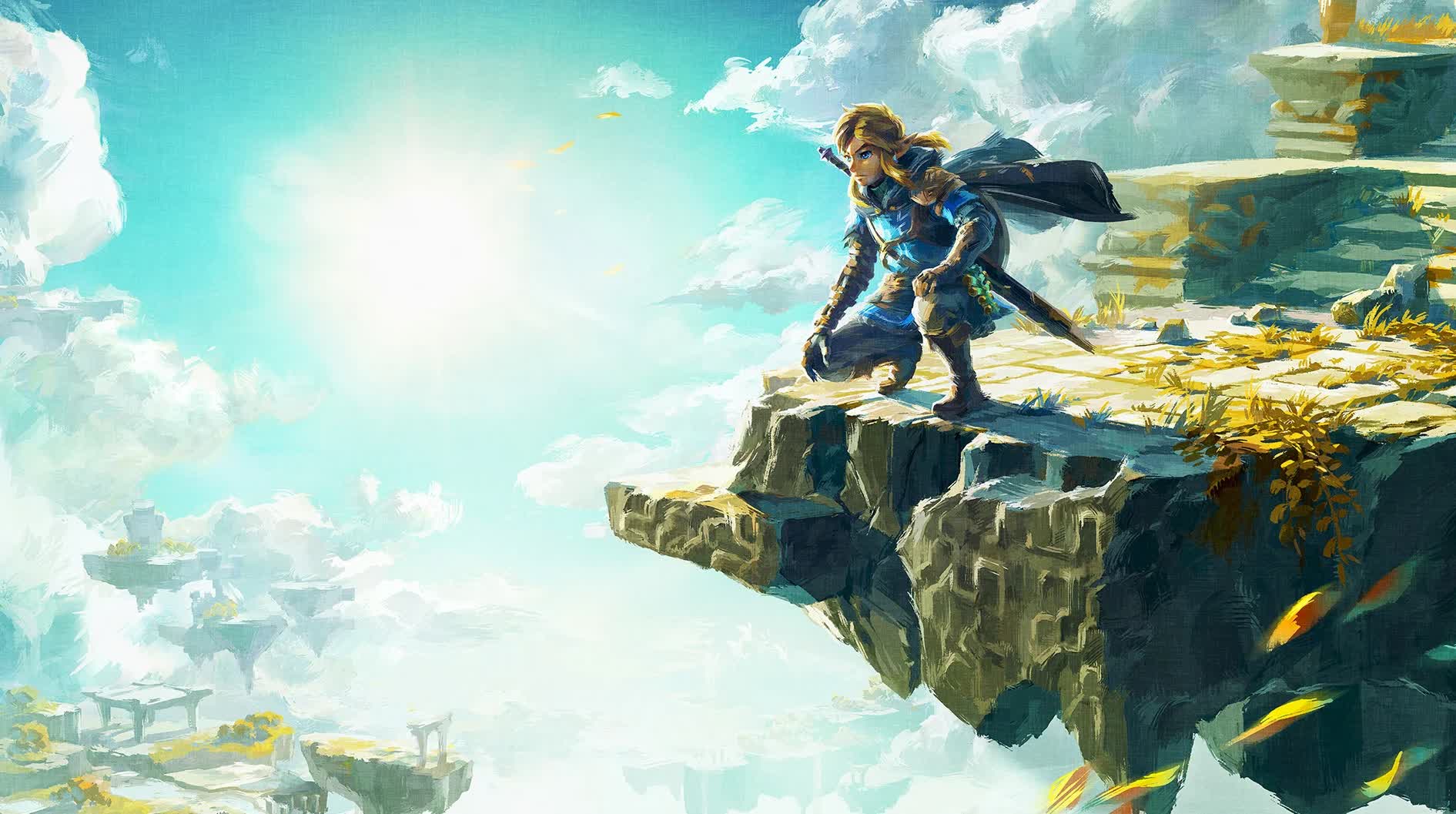In brief: It only takes one good game to set a pricing precedent, and for Nintendo that title appears to be The Legend of Zelda: Tears of the Kingdom. We already know that Nintendo's next Zelda adventure will drop for the Switch on May 12 and thanks to the recent Nintendo Direct presentation, we now have pricing data to go along with it.

The sequel to The Legend of Zelda: Breath of the Wild is billed as an epic adventure across the land and skies of Hyrule. In it, you'll chart your own path across the vast landscapes of Hyrule and explore the mysterious floating islands high above. Will you be able to tame Link's new abilities to ward off harmful forces threatening the kingdom?
The standard version of the game will carry a suggested retail price of $69.99. The Legend of Zelda: Tears of the Kingdom Collector's Edition – also dropping on launch day – will set you back $129.99. The latter includes a Steelbook case, a physical copy of the game, an art book loaded with concept art from the development phase, an Iconart steel poster and four pin badges.
Nintendo will also have a separate amiibo figure for Link that'll unlock access to in-game weapons and materials, including a special fabric for Link's paraglider.
At $69.99 for the base game, it appears Nintendo is setting a new barrier of entry with its premium IP. A quick check of Nintendo's online store reveals it's not the most expensive game on offer, but it is the highest-priced base game. Everything price equally or above the $69.99 mark is either a special / deluxe edition or comes bundled with DLC.
That begs the question – is $69.99 too high for a premium game from an established player that's based on fan-favorite intellectual property? I feel like I remember new release NES and SNES games going for anywhere between $50 to $60, and that was back in the late 80s and 90s. Adjusted for inflation, $69.99 doesn't feel like highway robbery to me. What do you think?
Interested parties can pre-order the digital edition from today and learn more about the physical copies and collector's edition over on Nintendo's website.
https://www.techspot.com/news/97555-zelda-6999-base-price-could-set-precedent-more.html